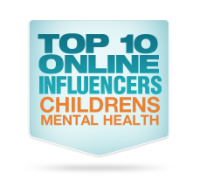 This past Tuesday, we reviewed the diagnostic criteria for Asperger’s Disorder and emphasized the notion that the unique pattern of strengths and weaknesses seen in kids with the disorder complicates efforts to serve them programmatically. We’ll continue our discussion today by examining three additional characteristics of many kids with Asperger’s that often complicate their ability to participate in activities at church.
This past Tuesday, we reviewed the diagnostic criteria for Asperger’s Disorder and emphasized the notion that the unique pattern of strengths and weaknesses seen in kids with the disorder complicates efforts to serve them programmatically. We’ll continue our discussion today by examining three additional characteristics of many kids with Asperger’s that often complicate their ability to participate in activities at church.
Kids with Asperger’s Disorder are more likely than their peers to struggle with motor skills and coordination. As a result, common activities that occur in children’s ministry settings (arts and crafts, hand gestures during praise and worship songs, games played in children’s church or during VBS) may be more challenging for kids with Asperger’s and evoke more frustration. They may be sensitive to teasing that results from peers observing their lack of competence during such activities.
Kids with Asperger’s Disorder are more likely to experience difficulty with attention, concentration, organization and/or obsessive, inflexible thinking relative to their peers. By some estimates, 60-70% of kids diagnosed with Asperger’s Disorder will also meet symptom criteria for Attention-Deficit/Hyperactivity Disorder (ADHD). As a result, they are more likely to have difficulty inhibiting behavior, self-regulating emotions, maintaining focus and staying on task compared to kids without Asperger’s. Here’s a post from that may explain the link between ADHD and autism spectrum disorders, as well as a resource page on ADHD and spiritual development.
Kids with Asperger’s Disorder are more likely than their peers to experience issues with sensory processing. When kids struggle with sensory overload, likened to a neurological “traffic jam” that prevents certain parts of the brain from receiving the information needed to interpret sensory information correctly, they experience difficulty processing and acting upon information received through the senses. Here’s an excellent handout on the condition from the Sensory Processing Disorder Foundation. Kids who struggle with sensory processing issues experience challenges in performing countless everyday tasks.
Translate this to a typical children’s ministry environment…lots of noise, too many kids talking, bright lights, vivid color. Kids with conditions associated with sensory processing disorder (common in kids with Asperger’s Disorder) may find church environments experienced by “neurotypical” kids as vibrant and engaging as unpleasant or aversive.
Next: Spiritual Growth Challenges for Children With Asperger’s Disorder
 Join me for the 2012 Children’s Ministry Websummit, from April 2nd through April 6th. I’ll have a video presentation on the topic…Square Pegs and Round Holes: Helping Kids With Asperger’s Disorder and Social Disabilities Grow Spiritually. I’ll be joining many leading speakers in the field of children’s ministry. Free registration is available here for the Websummit! Also, the complete DVD set of conference presentations (including the video of my presentation) is available now through this link at a reduced pre-conference price of $39.00. Proceeds support the availability of free ministry training offered by Pajama Conference, including Inclusion Fusion.
Join me for the 2012 Children’s Ministry Websummit, from April 2nd through April 6th. I’ll have a video presentation on the topic…Square Pegs and Round Holes: Helping Kids With Asperger’s Disorder and Social Disabilities Grow Spiritually. I’ll be joining many leading speakers in the field of children’s ministry. Free registration is available here for the Websummit! Also, the complete DVD set of conference presentations (including the video of my presentation) is available now through this link at a reduced pre-conference price of $39.00. Proceeds support the availability of free ministry training offered by Pajama Conference, including Inclusion Fusion.




